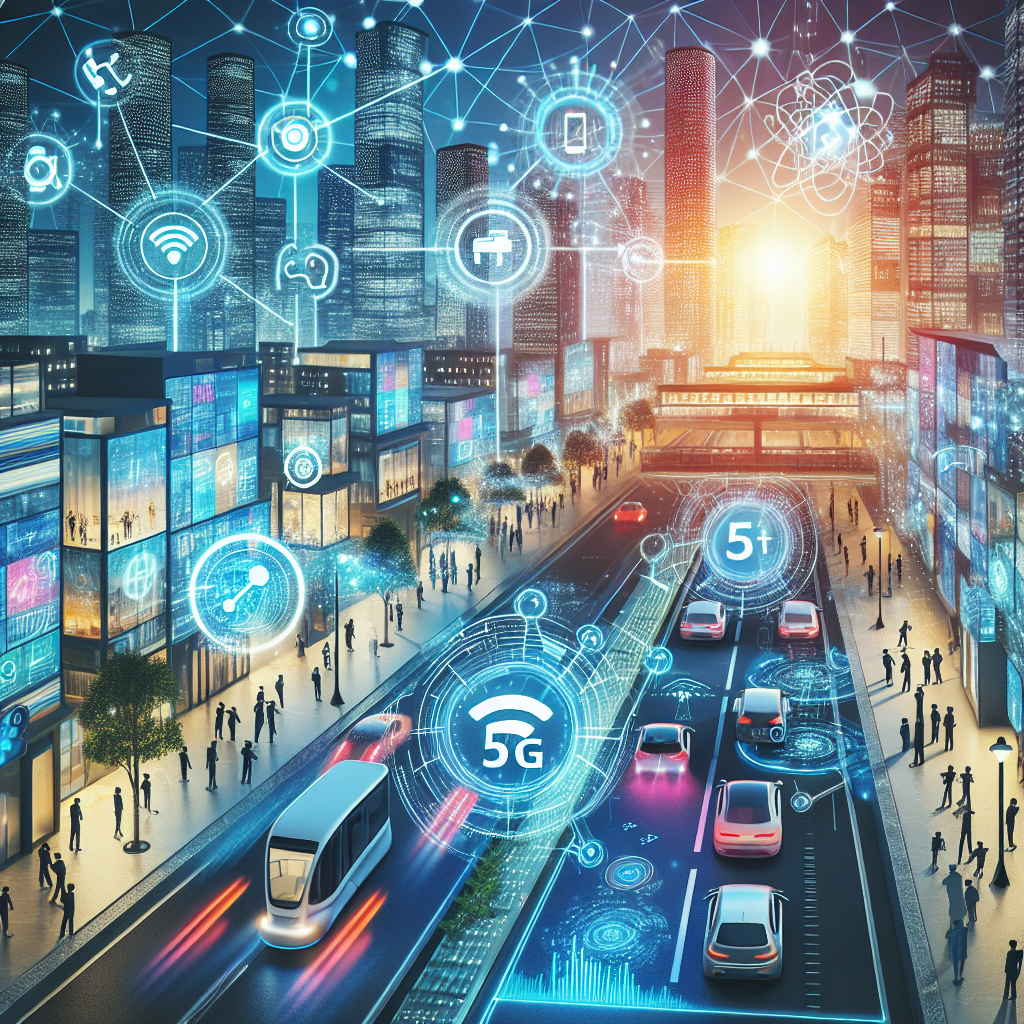In today’s rapidly advancing digital world, the introduction of 5G technology is set to revolutionize the way we live and work. This next-generation technology promises faster speeds, lower latency, and increased connectivity, paving the way for a plethora of new opportunities for smart cities around the globe. As more and more devices become connected to the internet, the demand for higher bandwidth and more reliable networks continues to grow. With 5G, cities can harness the power of this technology to create more efficient and sustainable urban environments.
One of the key benefits of 5G technology is its ability to support the Internet of Things (IoT) on a massive scale. The IoT refers to the network of interconnected devices and sensors that collect and share data to improve efficiency and productivity. With 5G, smart cities can deploy a wide range of IoT applications, from smart traffic management systems and intelligent street lighting to connected public transportation and smart waste management solutions. These applications can help cities optimize their resources, reduce energy consumption, and enhance the quality of life for residents.
Another major advantage of 5G technology is its potential to revolutionize transportation systems in smart cities. With ultra-fast speeds and low latency, 5G networks can support autonomous vehicles and connected infrastructure, making transportation safer, more efficient, and more sustainable. Smart cities can leverage 5G technology to create intelligent transportation systems that reduce traffic congestion, lower emissions, and improve the overall mobility of residents. In addition, 5G can enable real-time communication between vehicles, pedestrians, and traffic signals, allowing for more efficient traffic flow and safer roadways.
Furthermore, 5G technology can enhance public safety and security in smart cities. With its high speeds and low latency, 5G networks can support advanced surveillance systems, real-time video analysis, and emergency response applications. Smart cities can use 5G technology to improve situational awareness, monitor critical infrastructure, and respond quickly to emergencies. By leveraging 5G networks, cities can enhance public safety initiatives, reduce crime rates, and protect the well-being of residents.
In addition to these benefits, 5G technology can also drive economic growth and innovation in smart cities. By enabling faster data speeds and greater network capacity, 5G networks can attract new businesses, spur entrepreneurship, and create job opportunities in various sectors. Smart cities that invest in 5G infrastructure can position themselves as hubs for technological advancement, attracting investment and fostering a culture of innovation. As more devices become connected to the internet through 5G networks, new opportunities for business development and economic growth will emerge, transforming the urban landscape.
Despite the numerous advantages of 5G technology, there are also some challenges and concerns that need to be addressed. One of the major challenges is the high cost of deploying 5G infrastructure, including building new cell towers, upgrading existing networks, and acquiring spectrum licenses. Smart cities will need to invest significant resources to implement 5G technology, which may require partnerships with private sector companies, government agencies, and other stakeholders. In addition, there are potential security and privacy risks associated with 5G networks, such as data breaches, hacking attacks, and unauthorized access to sensitive information. Smart cities must prioritize cybersecurity measures and data protection protocols to mitigate these risks and ensure the safety and security of their residents.
FAQs
Q: What is 5G technology?
A: 5G technology is the next generation of wireless communication networks that promises faster speeds, lower latency, and increased connectivity. It will enable a wide range of applications, from IoT devices and autonomous vehicles to smart infrastructure and real-time communication.
Q: How will 5G technology benefit smart cities?
A: 5G technology will benefit smart cities by enabling faster data speeds, supporting IoT applications, improving transportation systems, enhancing public safety and security, and driving economic growth and innovation.
Q: What are the challenges of implementing 5G technology in smart cities?
A: Some of the challenges of implementing 5G technology in smart cities include the high cost of deployment, security and privacy risks, and the need for collaboration with private sector companies and other stakeholders.
Q: How can smart cities overcome the challenges of implementing 5G technology?
A: Smart cities can overcome the challenges of implementing 5G technology by securing adequate funding, prioritizing cybersecurity measures, establishing partnerships with key stakeholders, and engaging with the community to address concerns and build support for 5G deployment.
In conclusion, the introduction of 5G technology presents a tremendous opportunity for smart cities to reap the benefits of next-generation technology. By leveraging the power of 5G networks, cities can transform their urban environments, improve efficiency, enhance sustainability, and create new opportunities for growth and innovation. As more devices become connected to the internet through 5G technology, the potential for smart cities to thrive and prosper is greater than ever before. With careful planning, strategic investments, and a focus on collaboration and community engagement, smart cities can harness the full potential of 5G technology and create a brighter future for their residents.
